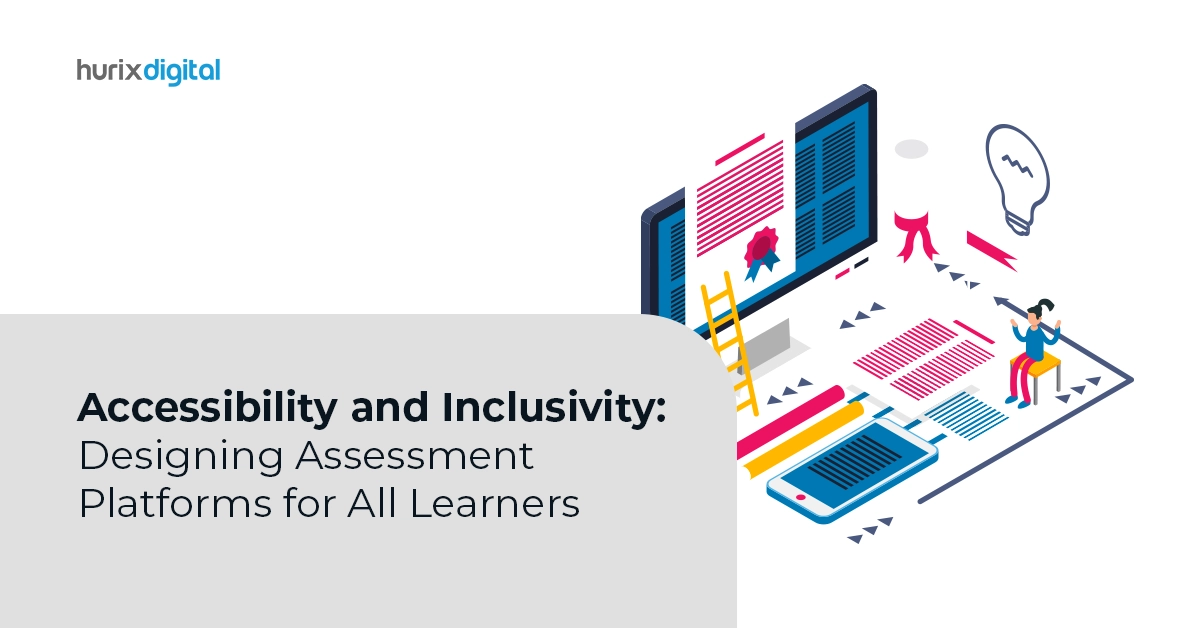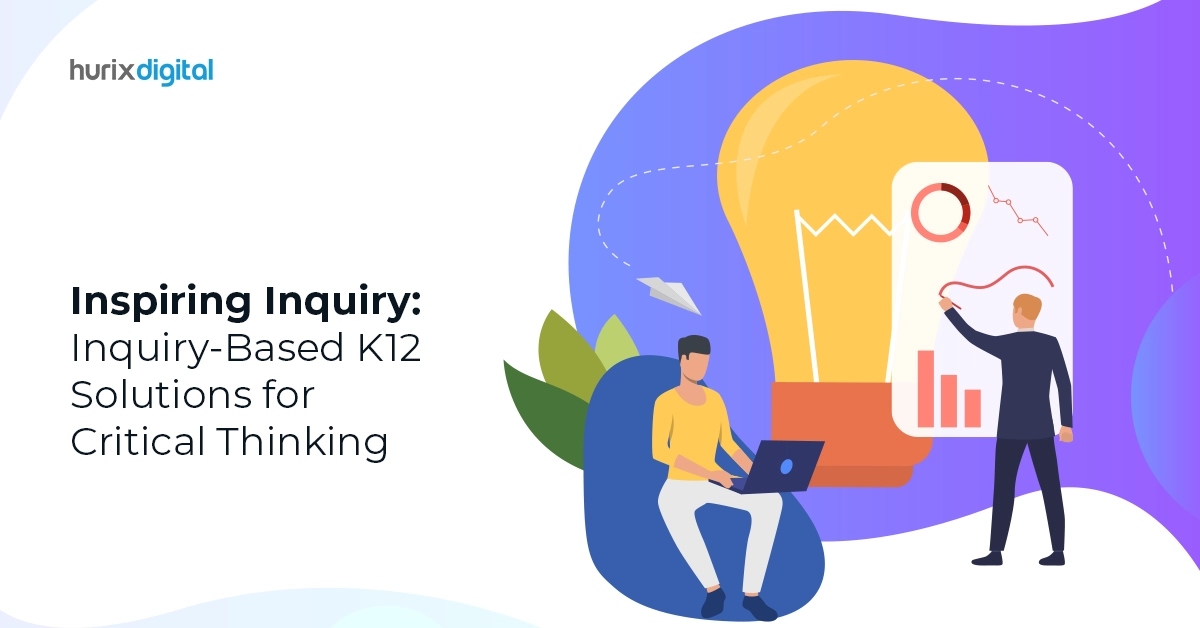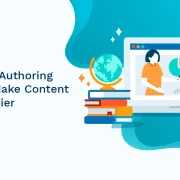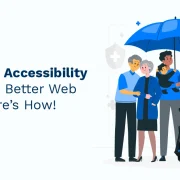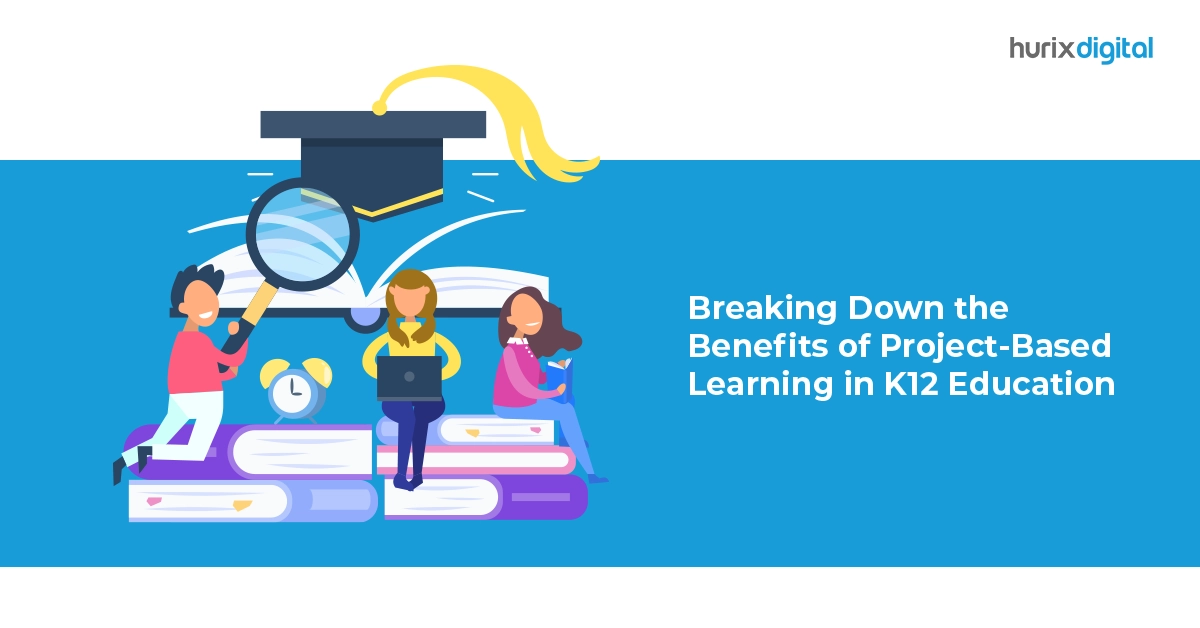
Breaking Down the Benefits of Project-Based Learning in K12 Education
Summary
Learn about the advantages of project-based learning in K12 education. This blog discusses how project-based approaches can enhance student engagement and learning outcomes.
The K12 education landscape has evolved dramatically over the years. There was a time when lessons were imparted in a completely traditional manner, with the teacher lecturing on a topic, using a blackboard or whiteboard to highlight anything important, or asking a student to read out parts of a lesson from a textbook.
Later, students were tested on what they retained from the discourse. However, as more educators realized the importance of better student engagement and understanding of lessons, the spotlight was turned on project-based learning.
Let’s explore project-based learning and its multiple benefits in K12 education!
Table of Contents:
- What is Project-Based Learning in K12 Education?
- 11 Benefits of Project-Based Learning in K12 Education
- Way Forward
What is Project-Based Learning in K12 Education?
Project-based learning is a unique instructional approach or teaching methodology that requires students to solve a complex problem or question over a certain period through investigation, collaboration, ideation, and skill-building. This particular education model allows students to learn through projects that last weeks or months.
A dynamic, student-centric pedagogy, project-based learning goes beyond memorization of lessons and traditional tests and encourages students to develop hands-on solutions to realistic challenges.
A study indicates that project-based learning, an educational innovation, significantly impacts interest in lessons, creative thinking, and computational thinking. It also enables teachers to assess students from the very moment they face a problem to the moment they solve it successfully, share feedback, and advise on improvement areas at every stage.
Also Read: AI-Powered Lesson Planning: Revolutionizing the Way Teachers Create Content for K12
11 Benefits of Project-Based Learning in K12 Education
Since K12 education sets the stage for a student’s professional trajectory and success in the future, project-based learning is being widely introduced nowadays for curriculum enrichment. Here are the 11 benefits offered by this dynamic learning approach:
1. Improved Communication
Project-based learning hones students’ communication skills and teaches them to convey ideas and suggestions effectively to others. Students not only have to work with their peers, but at the end of the project, they also have to present the outcomes to the entire class.
This sharpens the students’ writing and public speaking skills. Since leading K12 curriculum development companies understand the need for students to learn effective communication, they craft project-based learning materials accordingly.
2. Seamless Collaboration
Project-based learning is one of those K12 solutions that teach students to work as a team, help each other, adjust and share responsibilities, and appreciate the contribution of others.
It also instills values and skills like empathy, active listening, respect for different perspectives, and conflict resolution. Students receive feedback from peers and educators, too, and learn how to incorporate it into the project as a cohesive unit.
3. Critical Thinking
Since project-based learning involves working with realistic scenarios, students face various challenges and must brainstorm and ideate to come up with the best possible solutions. They are motivated to think critically and apply suitable theoretical lessons most strategically and practically to solve complex situations.
4. Better Engagement
Students discover the practical relevance and objective of their lessons through project-based learning. In other words, they discover why they are learning something and how it will help them in the future or when they pick a particular career path.
For instance, if a project requires students to find solutions to energy problems in a remote village, they learn to empathize with the disadvantaged, understand real-life problems and consequences of not having something essential, and determine the kind of value they can add to the community, society, and the world at large.
Hence, students become more engaged with the task at hand and develop a sense of ownership. This is also why leading K12 eLearning companies in the USA go the extra mile to make project-based learning materials engaging, interesting, and interactive.
5. Greater Efforts
As a student-centered learning model, project-based education automatically instills the spirit of problem-solving. Learners bounce back from failures through constant perseverance, learn from mistakes, and adjust their work until they are happy with the results.
Since their projects revolve around real-world issues, they feel motivated enough to work hard and look for answers to the toughest questions.
6. Enhanced Creativity
Project-based learning is an integral part of curriculum enrichment in K12 education. It pushes students to think outside the box and beyond the words in their textbooks.
Students often draw on their innate creative abilities to create innovative products or suggest unique solutions to problems. This boosts their brain power and prepares them for competitive examinations.
7. Improved Understanding
Project-based learning offers students the opportunity to upskill through practical and immersive applications of theoretical knowledge.
Instead of memorizing facts, theorems, laws, or formulas, they get a chance to actually understand complex concepts and how they make sense in the real world. This improves retention as well, without the need to spend hours poring over books or notes.
8. Efficient Management
Projects designed by the top K12 EdTech companies teach students how to manage different aspects and assignments in a timely and efficient manner. Students learn how to plan the different stages of a project, delegate tasks across the team, and ensure that the presentation or report is ready before the deadline.
The management skills instilled through projects help learners to easily balance academics, extracurricular activities, and other responsibilities when they pursue higher education or take up jobs.
9. Augmented Self-Confidence
Project-based student-centered learning inculcates a sense of pride and achievement in learners. They realize that their thoughts, ideas, voices, and opinions matter and can help solve real-world challenges. Students become confident about their research, thinking, communication, and interpersonal skills, which builds a strong foundation for their future success.
10. Cross-Discipline Exposure
In K12 education, students need to understand the importance of different disciplines or subjects and how they complement each other. Working on projects allows them to combine nuggets of knowledge from various fields to arrive at the outcome.
In the process, learners also discover their unique interests and aptitudes, and this helps them decide on a suitable career path down the line.
11. Better Attendance and Results
Project-based learning is a hands-on approach where students learn by doing. Hence, there is minimal chance of getting bored or distracted.
Since learners are more engaged and involved, they prefer attending classes regularly and participating too. They pick up concepts fast, retain them better, and consequently perform better in conventional assessments, too. In other words, their overall grades improve.
Check out EXCLUSIVE: HurixDigital Develops Accessible Math Videos for K-12 Students
Way Forward
Projects in the K12 education landscape can range from PowerPoint presentations, posters, dioramas, 3D models, and board games to skits, videos, quiz shows, and more. In any case, the key idea is to nurture creativity in students, encourage them to think critically and solve realistic problems, and inculcate all the skills necessary for a fulfilling future career and life.
Want to usher in such education innovation in your classroom? Hurix Digital is your perfect partner! Find out how we empower the modern learning environment with engaging content, relevant and purposeful curriculum, and immersive media elements.
Want to learn more? Contact us today!


